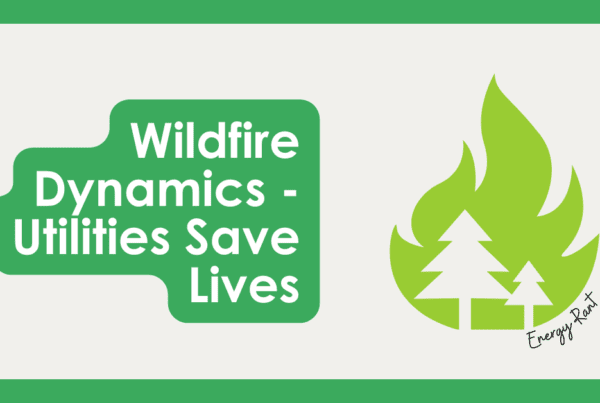
Communication in our business of delivering energy efficiency services, reports, and projects, and in any organization for that matter, is almost always an issue. One thing never heard is, “I don’t want to know all that. Stop it.” Why? Because the receiver can hit the ignore button or the delete button, but more often because there is hardly ever too much information transfer.
Here are some gold nuggets regarding communication.
The documentation rule: If it isn’t written down and shared with stakeholders in near real time – like after a meeting, phone call, event, milestone, on the same day, or the day after, it never happened. Decent managers of all sorts have some level of attention deficit disorder because they have a million things to juggle and thus forget things fast, or they are distracted and did not absorb what was said. Not to be confused with such a group, but I have told people at the water cooler that I will call or email a person, say a client, to see if we can get together for lunch or dinner while we are in town – not supercritical stuff. In the 20 paces to my office, four other moles (thoughts, like whack a mole) pop up, and I forget. Or in other cases, I’ll ask someone, “Why was this done this way” with a “Whose stupid idea was this” tone. “It’s what you asked for, Jeff” (in writing, coincidentally).

The 24 hour statute of limitations: The client or boss asks for something that is going to screw up the timeline on a project, make the results less effective or accurate, provide less bang for the buck (waste time), or maybe it’s a stupid or a brilliant idea. What to do? Pause, think about it, consider alternatives to conventional approaches for a while – few minutes, few hours, over night, etc. – talk it over with the team or supervisor, and if it still is going to cause problems, there is 24 hours, or essentially a business day, to push back. Silence = bought. No one I know likes to say no, that won’t work, or that will cause a delay, but these choices are a hell of a lot better than silence and being painted in a corner down the road.
Silence is not golden: Not following through and finishing a task or a project on time is bad. Not saying anything in advance, the minute a failure or delay becomes inevitable, is worse. Not saying anything at all is the worst. The Navy pilot rule of asking for forgiveness here is not the way to go.
Relentless isn’t just for defense: What is a leading cause of a delay in getting something completed on time? Lack of information. Not getting what you need through sending emails? Call. Doesn’t answer the landline? Call the cell phone. Call the contractor. Call somebody at another office. Call the person’s boss. See the first, second, and third items above too.
Publicity propels: Maintaining a task/status list and putting it in front of stakeholder faces regularly with names and timelines tied to them makes things happen, and projects seem to miraculously get done on time, provided tasks are reasonable and none are forgotten (as in, never on the list). This is accountability. Sometimes the client is holding up the show, and that’s ok. They are the customer, but it needs to be obvious to anyone paying attention what the holdup is.
New clients and new teams require more communication, until trust in delivery and results are built with proven performance. It doesn’t take much. Clients just want a vibe that things are under control and that the consultant knows what they are doing. After a few projects/milestones, they know it will be there in the end. As we used to say in the Navy, it will all work out in the end (but not without some sweat and long days).





